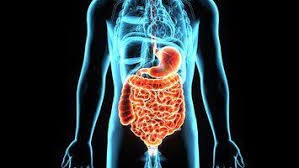What Foods Cause Leaky Gut? Understanding the Impact of Diet on Gut Health
Leaky gut, or increased intestinal permeability, is a condition where the lining of the small intestine becomes damaged, allowing toxins, undigested food particles, and harmful microorganisms to leak into the bloodstream. This can cause inflammation, trigger immune responses, and potentially lead to a range of symptoms such as bloating, fatigue, skin issues, and autoimmune conditions. While several factors can contribute to leaky gut, diet plays a critical role in either exacerbating or alleviating this condition. Here’s a look at some common foods and beverages that can potentially worsen leaky gut.
1. Refined Sugar and Processed Foods
Refined sugar and highly processed foods are significant culprits in promoting leaky gut. These foods often contain artificial additives, preservatives, and excessive amounts of sugar, which can disrupt the balance of gut bacteria. An imbalance in gut flora (dysbiosis) can weaken the intestinal lining, making it more susceptible to permeability. Furthermore, sugar feeds harmful bacteria and yeast in the gut, promoting inflammation and further damage to the gut lining.
2. Gluten
Gluten, a protein found in wheat, barley, and rye, can contribute to leaky gut, especially for those with celiac disease or non-celiac gluten sensitivity. In susceptible individuals, gluten triggers an immune response that causes inflammation, damaging the gut lining. Even in people without these conditions, regular gluten consumption can gradually lead to gut permeability over time.
3. Dairy Products
Dairy products, particularly for those who are lactose intolerant or sensitive to casein (the protein in milk), can trigger digestive distress and inflammation. This inflammation may contribute to damage to the intestinal lining, exacerbating leaky gut symptoms. Even in individuals who aren't lactose intolerant, large amounts of dairy may irritate the gut and worsen permeability.
4. Alcohol
Alcohol is another major contributor to leaky gut. Excessive alcohol consumption can damage the gut lining, increase inflammation, and disrupt the balance of gut microbiota. It also impairs the gut's ability to repair itself, making it more prone to permeability. Regular alcohol intake can further exacerbate intestinal damage and promote leaky gut over time.
5. Vegetable Oils and Trans Fats
Processed vegetable oils and trans fats, often found in packaged snacks, baked goods, and fried foods, can contribute to gut inflammation and increase intestinal permeability. These unhealthy fats create an imbalance in the omega-6 to omega-3 fatty acid ratio in the body, leading to increased inflammation that can harm the gut lining and encourage leaky gut.
6. Artificial Sweeteners
Artificial sweeteners, commonly found in sugar-free products like diet sodas and low-calorie snacks, can negatively affect gut health. Studies suggest that these sweeteners alter the gut microbiome by promoting the growth of harmful bacteria, which may impair gut function and contribute to leaky gut. This disruption can increase intestinal permeability and worsen overall gut health.
7. Coffee, Black Tea, and Soft Drinks
Coffee and black tea contain caffeine, which can increase stomach acid production and irritate the digestive tract, potentially damaging the gut lining over time. For some individuals, this can exacerbate leaky gut symptoms. Soft drinks, especially sugary sodas and artificially sweetened beverages, are also problematic. The high sugar content in regular soft drinks can feed harmful bacteria in the gut, leading to dysbiosis. Diet sodas, which contain artificial sweeteners, can further disrupt gut microbiota, exacerbating the risk of leaky gut.
8. Chocolate
While chocolate is often seen as a delicious treat, it can also contribute to gut issues for some people, particularly those with sensitivities to certain compounds. Chocolate contains caffeine and theobromine, both of which can irritate the stomach lining and increase gut permeability in sensitive individuals. Additionally, many commercial chocolates are high in sugar and artificial additives, which can further disrupt gut health and promote leaky gut.
Several common foods and beverages—such as refined sugar, gluten, dairy, alcohol, artificial sweeteners, coffee, black tea, soft drinks, and chocolate—can contribute to leaky gut. These foods may damage the gut lining, disrupt the balance of beneficial gut bacteria, and promote inflammation, all of which increase intestinal permeability. By eliminating or reducing these gut-irritating foods and focusing on a diet rich in whole, anti-inflammatory, and gut-healing foods, you can help restore gut health and prevent the progression of leaky gut.
